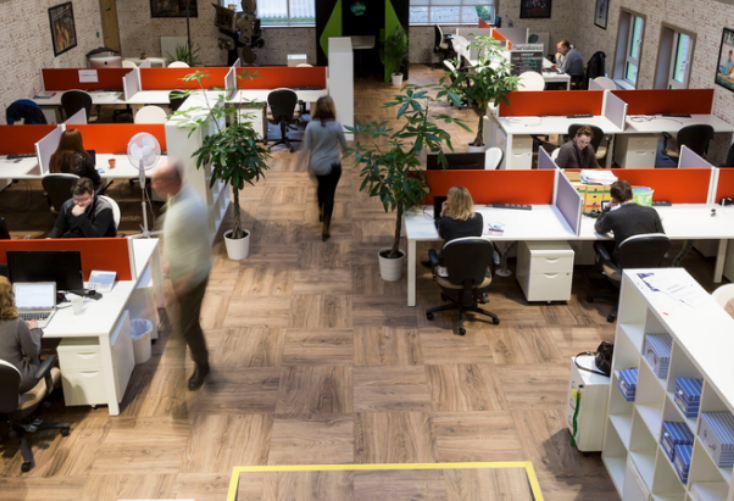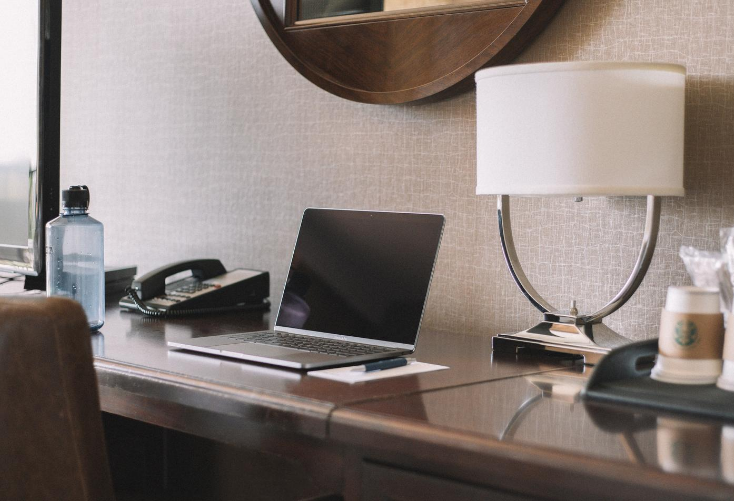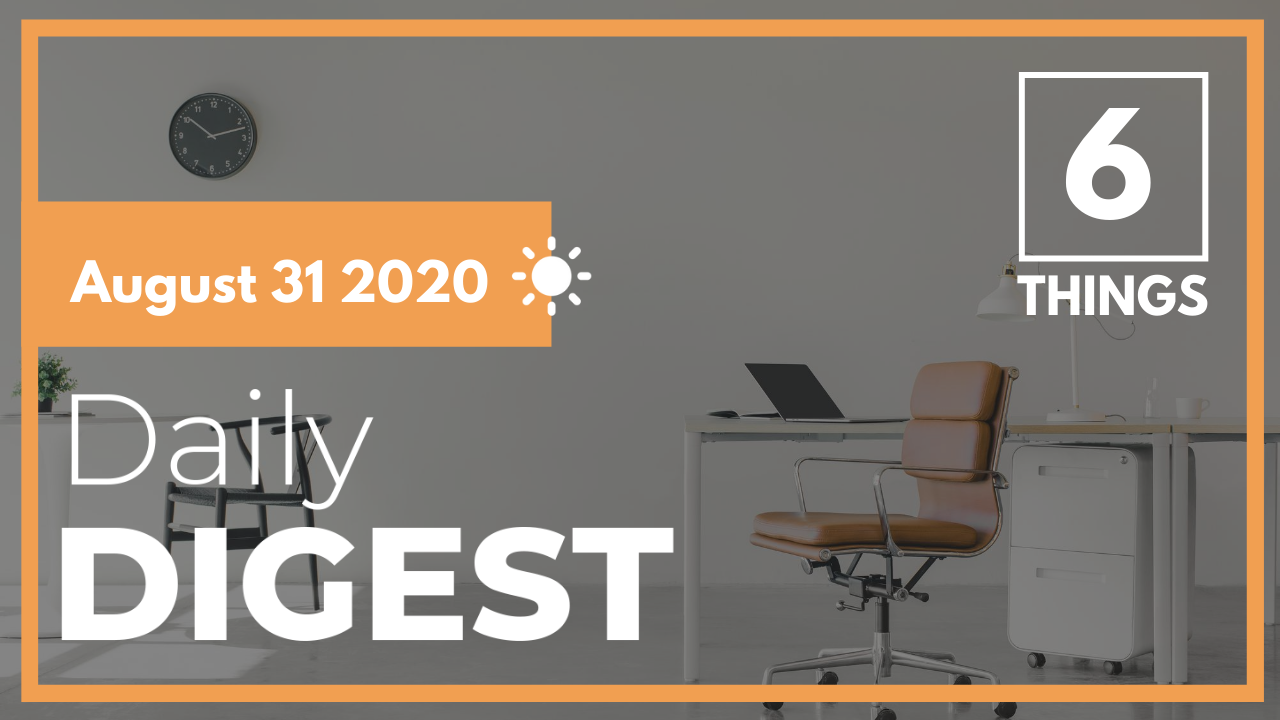Hand selected flexible workspace news from the most reliable sources to keep you ahead of the pack. We find all the latest news, so you don’t have to. Morning and afternoon updates. Stay in the know.
- Reflecting On The Best Ways Companies Operate NEW
- Why A Physical Office Is Still Necessary NEW
- Digital Hubs Offer A Place Of Solace For Remote Workers NEW
- Flexibility Is Essential For Business Longevity
- The Natural Relationship Of Hotels And Coworking Spaces
- How Coworking Firms Are Adjusting To The New Normal
Reflecting On The Best Ways Companies Operate
Despite the seemingly countless obstacles that most companies have had to face over the past several months, one glimmer of hope is the acceleration into the future.
Now that companies have now had time to reflect on what does and does not work for their employees, it is important to make the changes necessary to keep workers safe, satisfied and inspired. It is time to rewind, reset and reimagine the workplace.
First, business leaders need to rewind to the time when the pandemic first hit and look at how certain challenges were faced. For instance, many organizations made the quick transition from in-office operations to fully remote work. This led to adopting and learning new technologies, as well as new challenges. How did leaders handle these sudden changes and support workers in the meantime?
Next, companies should reset how they once kept workers engaged and come in with a new approach. That means sending out real-time surveys to measure how employees are working and what they need to say as productive and mentally healthy. Equipping them with the necessary tools to get work done from home, while also respecting boundaries, is essential to creating an engaged, healthy work culture.
Lastly, as economies around the world begin to slowly reopen, businesses should consider their next move. For many, this will likely mean a hybrid work arrangement that provides the perks of working from home and in the office.

Why A Physical Office Is Still Necessary
While the transition to a mostly remote workforce has been intriguing at the very least, it has left an air of uncertainty about the future of physical workspaces.
According to Nathan Sri, principal of strategy at Unispace, workers are still facing challenges with working from home in terms of socialization, collaboration and connecting with colleagues.
“The physical workplace still offers employees a range of emotional, psychological and professional benefits, and presents a platform to establish crucial organizational pillars such as tightly woven teams and a strong corporate culture,” said Sri.
According to UniSpace’s WorkReady survey, 20% of remote workers are disadvantaged in that they lack the tools needed to effectively work from home. Additionally, 25% said they do not feel like their position is built for remote working arrangements, indicating that employers need to have a better strategy that accommodates all employees.
Moving forward, companies should look into a more hybrid approach to allow employees to work in both at-home and in-office work environments. This also means that businesses need to upgrade their technology so employees can easily collaborate no matter where they decide to work. Additionally, organizations should also look into incorporating smaller spaces within the office built specifically for small group meetings or individual work.
The inclusion of a physical office also means reevaluating how that workspace is designed. As we are in the middle of an ongoing pandemic, businesses need to keep the safety and health of workers as their number one priority. This means including touch-free technology, spaced out work stations and installing self-cleaning appliances.

Digital Hubs Offer A Place Of Solace For Remote Workers
The state of how we work forever changed in March after the pandemic forced millions of companies across the world to move employees to remote working positions.
Now, the Irish government is working to build funding for digital hub centers that would support small businesses during these unprecedented times. These digital hubs supported by the National Association of Community Enterprise Centers, the Irish network organization for hubs and community centers, would serve as a workspace for remote workers who are struggling with isolation and fatigue from their remote working arrangements.
These hubs focus on nurturing a sense of community by offering various facilities and events, such as meeting rooms, wellness seminars, collaboration spaces and much more. For instance, the Galway Technology Center features an onsite cafe, virtual office services, yoga classes and even implemented antibacterial light switch covers from MedScan3D, a company that worked out of the center.
Digital nomads and entrepreneurs aren’t the only users of these office spaces. Even large companies that operate completely remotely utilize these types of hubs for pop-up meetings and collaboration opportunities with one another.
“At an international conference last year, I encountered a digital nomad whose true passion was surfing, and he told me of his working holiday come surf trip along the Wild Atlantic Way,” said Rowena Henningan, author at RTÉ Ireland. “Surfing early in the morning and spending the rest of his days working remotely at various coworking locations in Donegal, Sligo, Galway and Clare meant that he could truly enjoy an unparalleled work/life balance.”

Flexibility Is Essential For Business Longevity
It should come as no surprise that the pandemic has forced companies to adapt to the constantly evolving needs of employees and the public.
With this has come the need of reducing overall costs and expenses, which has led several businesses to opt for more flexible real estate as part of their long-term strategy.
The desire for physical workspaces has become increasingly uncertain in the midst of the pandemic. Companies have opted to transition to more remote workforces to keep workers safe. However, some claim that community and collaboration take a hit with this type of arrangement. That is why flexible workspaces serve as the perfect solution as employees have the ability to come into the office as they please, while organizations get to reduce their office footprint and operational costs.
Additionally, the asset-light approach has become more appealing to companies in the current economic climate. Using flexible offices helps businesses unload unnecessary assets without the burden of signing a long-term lease. This aids in nurturing an agile, distributed workforce that better caters to the needs of employees, while allowing organizations to scale up or down as necessary.
Not only does the use of flexible offices help keep companies afloat during such uncertain times, it also aids them in becoming more sustainable. Employers are able to take into account the usage of office resources, while keeping in mind how this can improve the mental health of their workers and how this promotes a company’s longevity.

The Natural Relationship Of Hotels And Coworking Spaces
Partnerships between hotels and coworking spaces have become increasingly popular over the past few months, particularly in the wake of the ongoing pandemic.
This trend feels seamless, as hotels have long nurtured an atmosphere of socialization for traveling professionals and locals. Along with already having countless amenities, being in a business center makes adding a coworking workspace a natural extension for hotels.
Hotels already are equipped with kitchen and other leisure amenities, so these hospitality companies could greatly benefit from profit sharing agreements with coworking operators who would be able to manage and operate a fully-equipped workspace within the hotel.
This is ideal for both parties involved, with coworking firms benefiting from being able to take advantage of amenities that are already outfitted in these buildings, such as valet parking, restaurants, fitness facilities and more.
However, there are potential challenges both the hotel and coworking space could face. For instance, both parties want to ensure that they do not interrupt one another’s operations. Additionally, with distancing and cleanliness practices becoming a necessity in today’s society, enforcing these rules can be difficult. If these risks are addressed early on, operations should run smoothly as possible.

How Coworking Firms Are Adjusting To The New Normal
Flexible workspace companies have had to completely reevaluate their operations as their high density environments are no longer an appealing option for many businesses in a pandemic-ridden society.
Now, many are reducing their capacity to accommodate physical distancing measurements, as well as implementing sanitation stations and reducing occupancy in meeting rooms.
However, according to Colin Scarlett, executive vice president of Colliers Canada, many clients have continued to actively seek out additional office space to better accommodate spacing out their employees.
“To pick up and move into either a smaller space or potentially a bigger space, there’s a capital cost component to that: You need to build walls, put carpet down, buy furniture,” said Scarlett. “Where if you move to a coworking company, the coworking company spends all that money for you.”
While this method has been ideal for larger coworking companies who cater to enterprise clients, smaller operators are not as lucky. Chief operating officer of Canadian firm Workhaus Ryan Speers explained that the firm takes on the risk and exposure of the long-term lease in return for offering flexible terms. With smaller businesses opting out of taking up any office space, revenue has dropped substantially.
This has led small coworking companies to market themselves as a workspace that is more safe and health conscious than their large competitors.















